Hello there, thank you for clicking on the link to this page. It’s my birthday today, yay!!! Say a prayer for me and promise to read this to the end. Keep your promise, okay? Thanks.
You can read the review here or watch the drama here. Otherwise, I’ll narrate the story for you. Enjoy!
First off, I want to give a big shout-out to the RCF UNILAG drama team for putting together this incredible drama.
The play opens by introducing us to the land of Àyìnkẹ́, a remarkably powerful place that no other land, no matter how rich, poor, or powerful, had been able to conquer or even make a dent.
The people of Àyìnkẹ́ worship Olódùmarè ́, their one and only true God, and they strictly adhere to His teachings.
They do not worship any other deities or live according to their own whims. They are blessed with abundance, never suffering from lack or famine.
The story unfolds as we are introduced to the Èṣó clan, a group of brave warriors who are devout in their prayers as they prepare for war.
Among them is Olówu, who possesses a keen eye for the armory and is chosen by Akíntọ́lá, the leader of the army, to procure weapons from the blacksmith.
Along his way, Olówu encounters his friend, and they engage in a discussion about marriage.
Olówu admits that he hasn’t come across any beautiful woman in the land of Àyìnkẹ́, but amidst the turmoil of war, he encountered a woman from a different tribe who caught his eye.
This woman possessed radiant skin that glowed in the sun, and she had long, thick hair.
Olówu’s friend tries to remind him of the laws that prohibit marrying outside of Àyìnkẹ́, but his words fall on deaf ears, and they part ways.
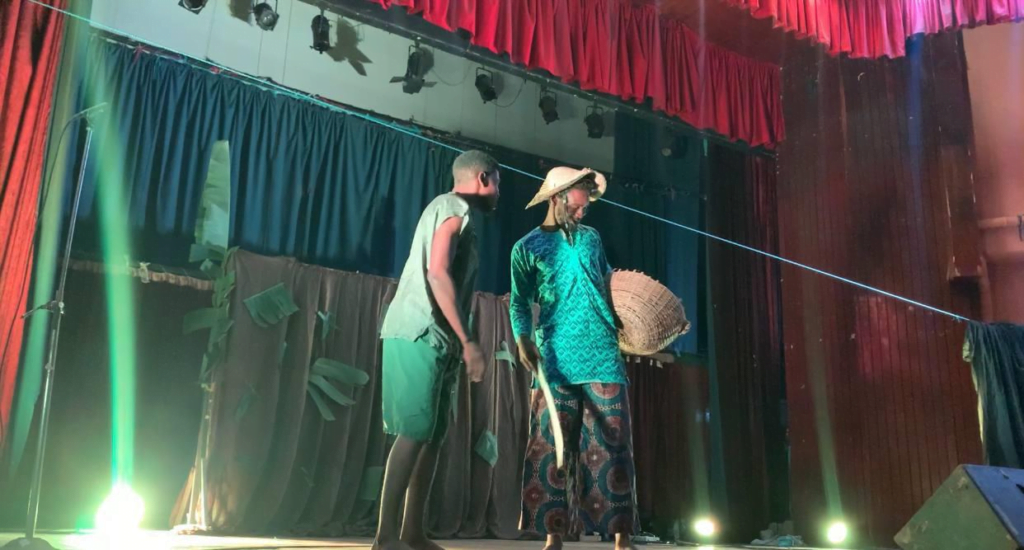
The last day of the festival arrives, and some of the people gather at the palace, including King Adébárá, the Olóyès (Chiefs), and every member of Àyìnkẹ́.
The Chief priest, whose name is Agbólúrìn, emerges to remind the people of all the laws given to them by Olódùmarè ́, their God.
One of these laws specifically forbids them from marrying individuals from other lands. The people pay close attention as they listen to him attentively.
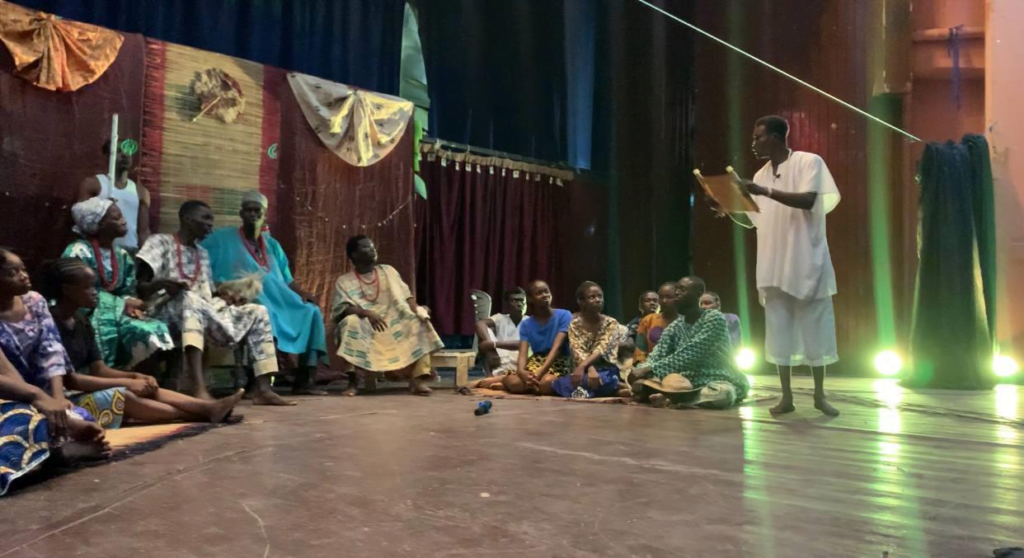
In the following scene, a gathering takes place at the palace, with King Adébárá, his Olóyès (chiefs), Agbólúrìn, and some villagers.
News had arrived that a group of people from a faraway land, sent by their king, have come to pay homage to King Adébárá.
They introduce themselves as being from the distant land of Omífọ́n, a place that requires a two-month journey to reach.
Their weary faces and fatigued bodies, burdened by their travel load, reflect their claim.
They have heard of the great wonders of Àyìnkẹ́ and have come bearing gifts, seeking to learn how to serve the God of Àyìnkẹ́. Blinded by their greed, the Olóyès eagerly agree to the situation.
After contemplating the situation, King Adébárá finds no fault in it. He states that the laws do not prohibit making peace with other nations, and he promises to establish a treaty of peace with the people of Omífọ́n.
The two villages rejoice as they blend together in harmony.
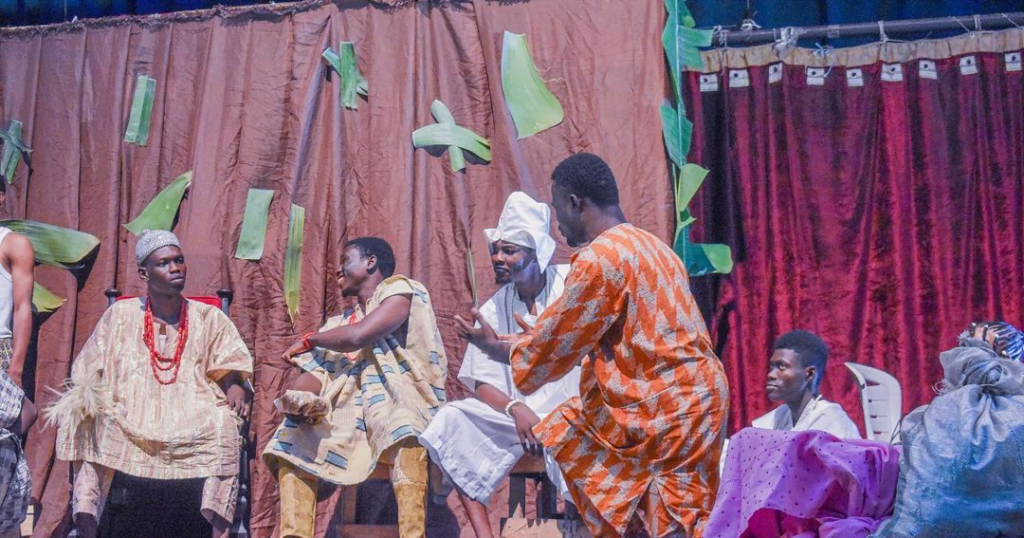
The Chief Priest, however, reminds King Adébárá and the Olóyès about the existing law, emphasizing that they are unfamiliar with the people of Omífọ́n since they have never heard of them before.
King Adébárá reassures the Chief Priest, expressing that the visitors have come solely to seek the favor of their God.
The people of Omífọ́n confirm this and present a beautiful woman named Ẹwàtómi, the very same woman whom Olówu, the warrior, had admired.
The presentation brings joy and jubilation among the people. Akíntọ́lá, the leader of the warriors, seizes the moment and suggests that Olówu, being the most eligible man in Omífọ́n, would be a perfect match for the maiden.
The King approves of the proposal, and the people celebrate with delight as they join in the festivities surrounding the union of Olówu and the new bride.
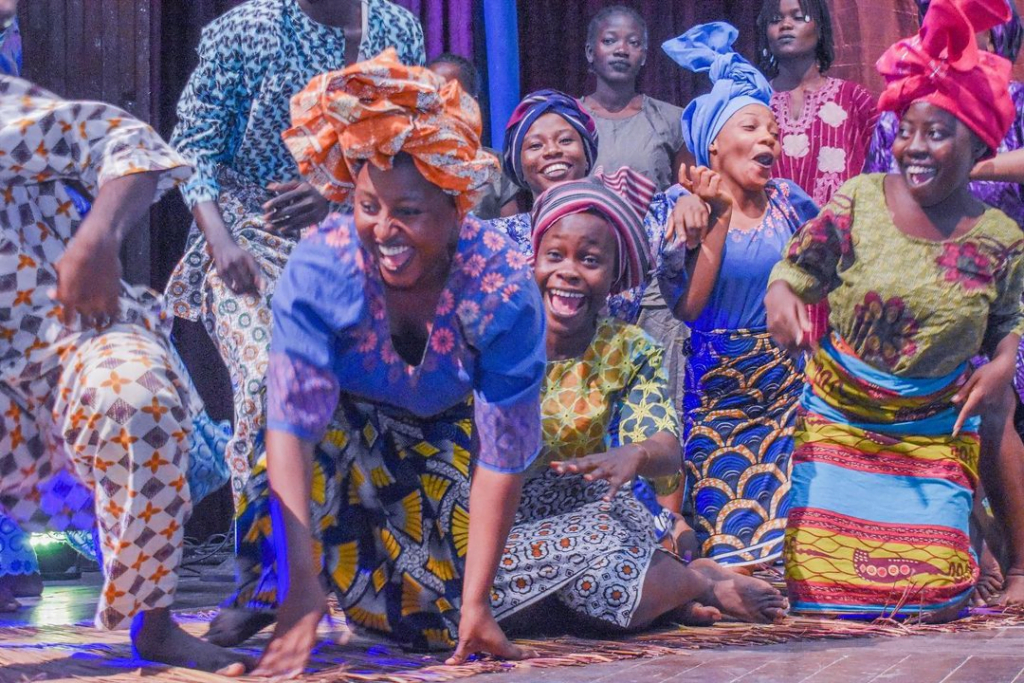
A few days later, King Adébárá and the Olóyè’s convene to discuss the wedding preparations.
Among the plans is the suggestion made by the female Chief, Ìyálóde, to slaughter ten big, fat cows for the wedding feast.
The other chiefs are astounded by the suggestion, but Ìyálóde reminds them that this union with the people of Omífọ́n brings open doors for Àyìnkẹ́.
They have received valuable gifts, and there are prospects of receiving even more after the wedding.
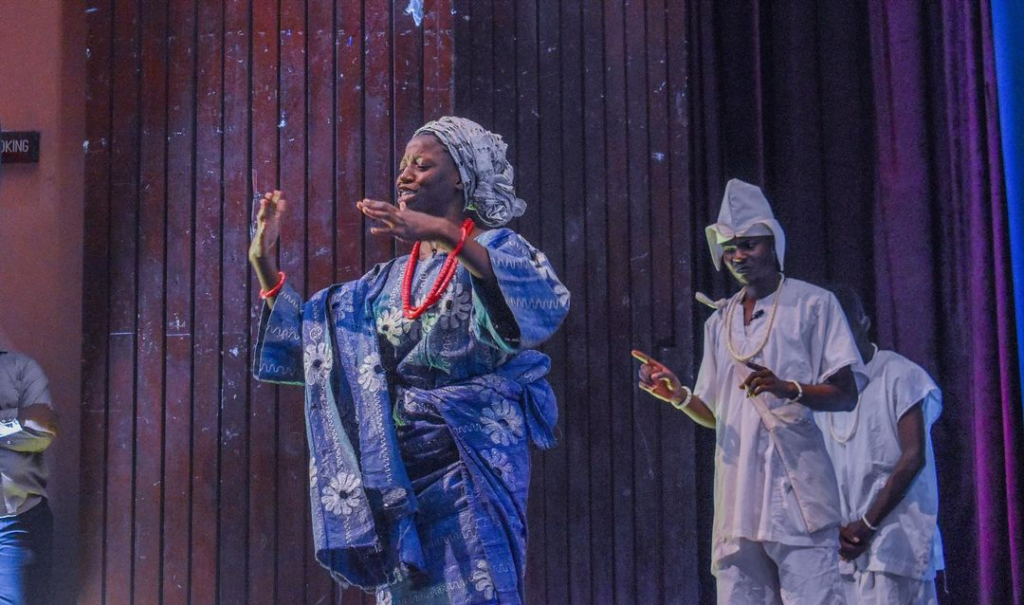
Curious about Agbólúrìn, the Chief Priest’s opinion, King Adébárá turns to him for guidance.
Agbólúrìn however, expresses his disagreement. He advises caution and urges them to wait for a response from Olódùmarè ́ before proceeding with the wedding.
The Olóyè’s argue that Olódùmarè ́ would not be against something beneficial for the people of Àyìnkẹ́. But Agbólúrìn insists that some things may appear pleasing to the eyes but could ultimately lead to destruction.
While the coming together of the two towns is favorable, he emphasizes the need to wait on Olódùmarè’s guidance.
In disagreement with the Agbólúrìn’s counsel, the King and the Olóyè’s not only dismiss him but go as far as chasing him away.
Nonetheless, Agbólúrìn’s assistant returns and offers to oversee the wedding ceremonies in his absence. The King and the Chiefs agree to this alternative arrangement, disregarding Agbólúrìn’s objections.
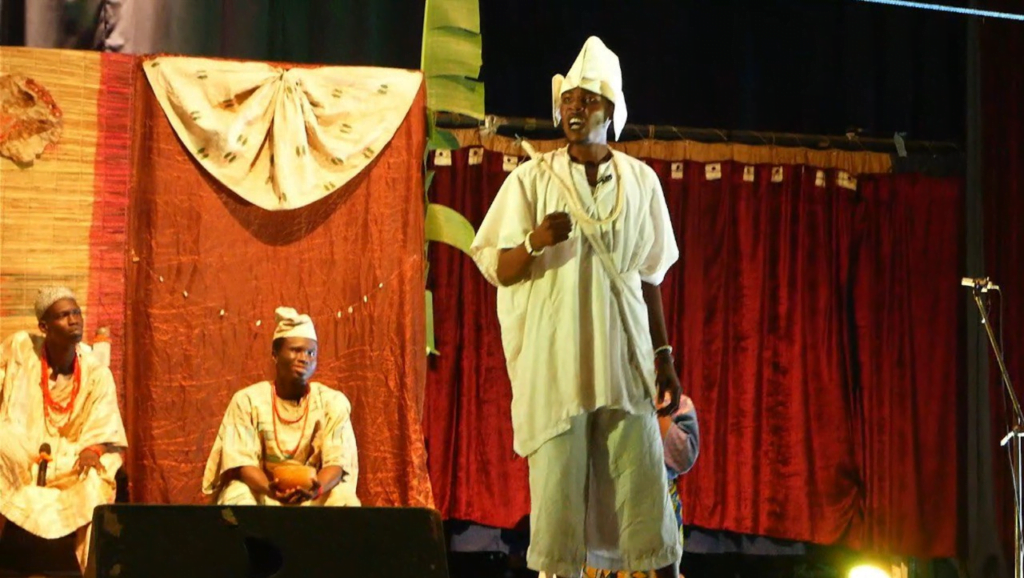
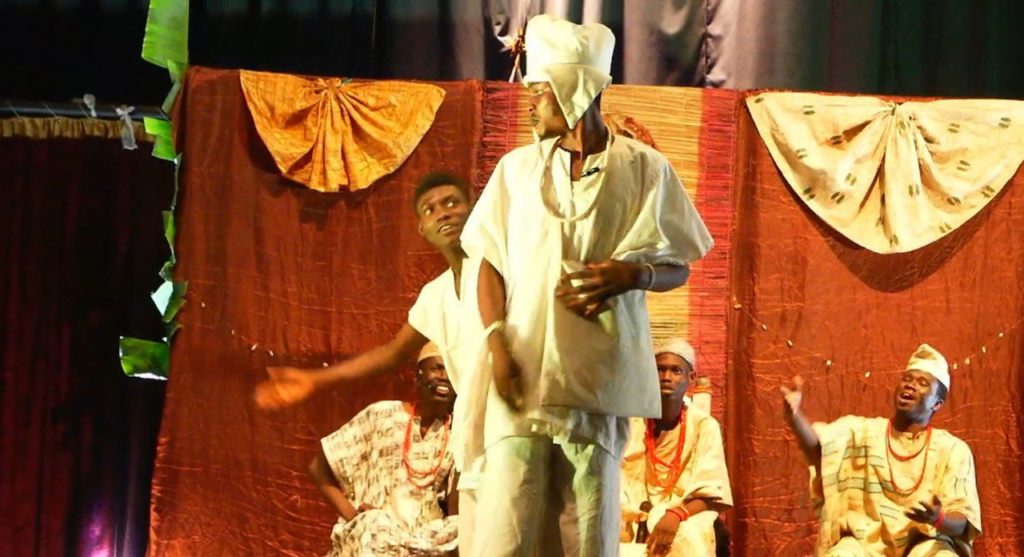
Finally, it’s the wedding day, and everyone gathers together, filled with joy and celebration. They are all happy as the assistant Chief Priest leads the wedding ceremony. The couple is officially married, and the festivities continue.
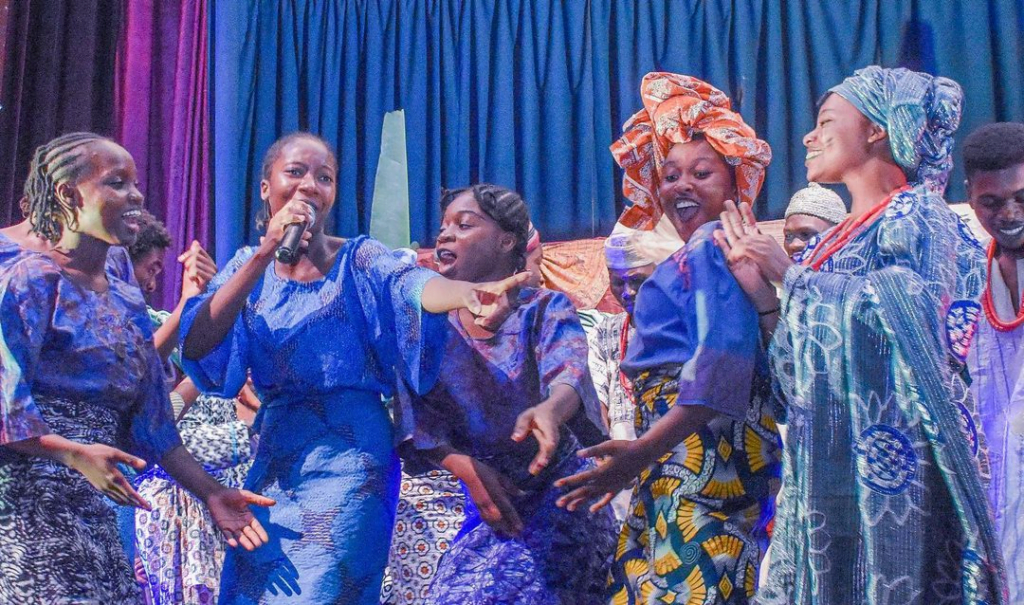
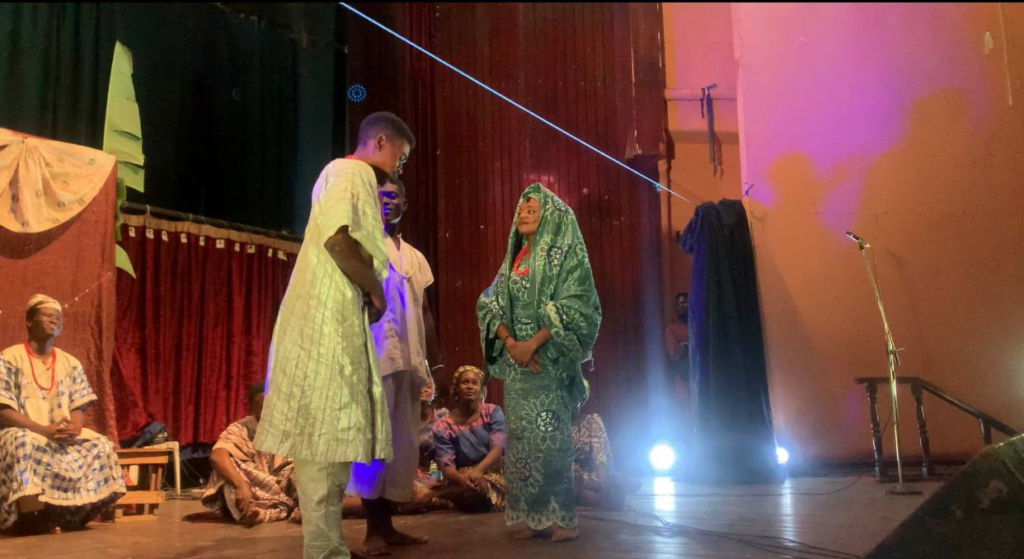
In the midst of the celebration, a darker scene unfolds. Some of the people from Omífọ́n, along with their warriors, cast evil glances and make gestures below their necks symbolizing harm or death.
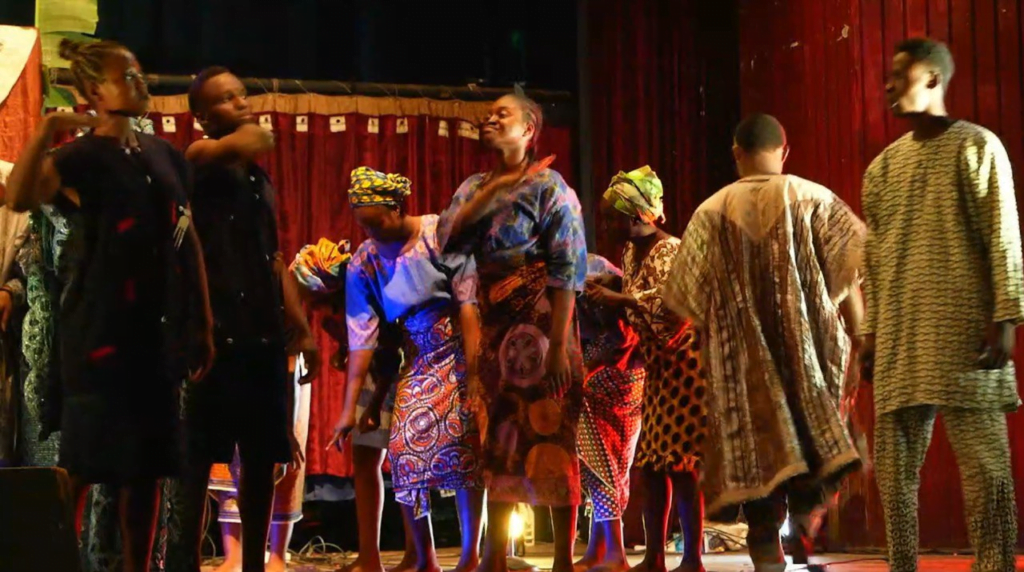
Meanwhile, the wedding celebration continues, and the newlywed couple makes their way to their new home.
Olówu expresses his happiness to his bride, Ẹwàtómi, telling her how delighted he is to have married her.
She reciprocates his sentiments, assuring him of her love. Olówu promises to take care of her and fulfill her needs to the best of his ability.
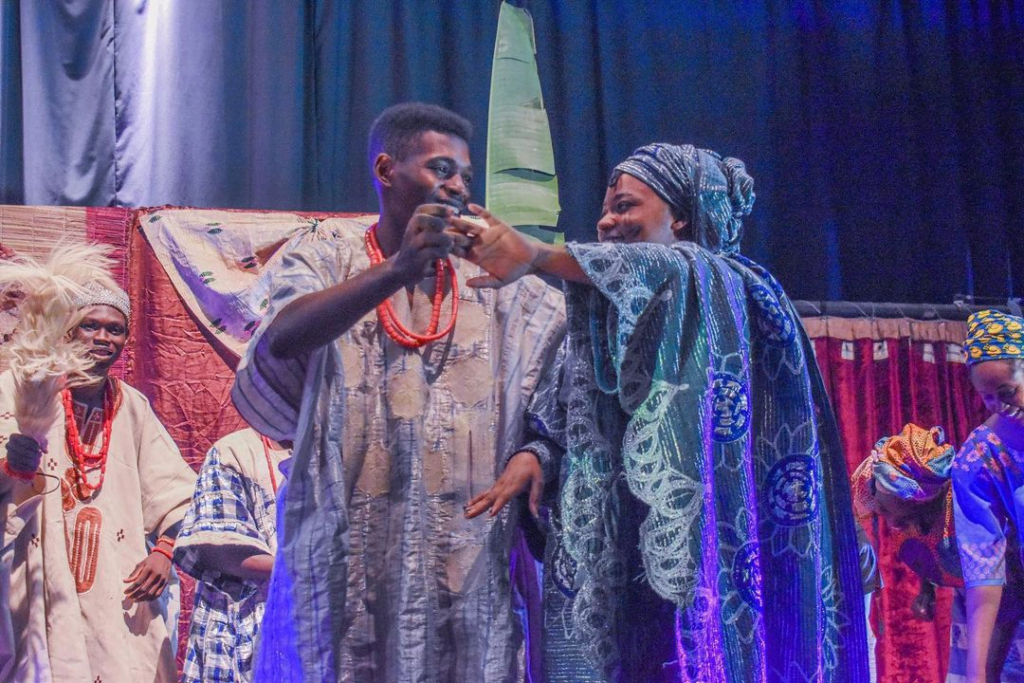
Suddenly, without warning, she forcefully pushes him to the ground, and her true nature is revealed.
She is not who she claimed to be from Omífọ́n. Instead, she hails from Ajagungbalẹ̀, a people known for their conquering and destroying other towns.
She mocks Olówu, revealing that their entire relationship was a deception. She discloses that she is married to the leader of Ajagungbalẹ̀, her real name is Ifálùsì and this union was nothing more than a charade.
Olówu, still in shock, realizes the gravity of the situation and begins to cry as Ifálùsì continues to physically assault him, further displaying her cruelty.
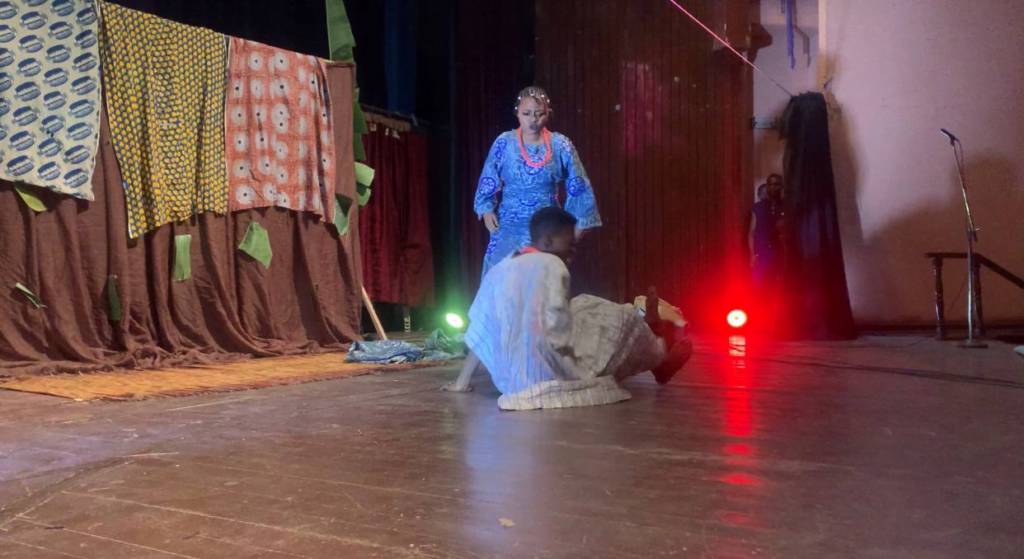
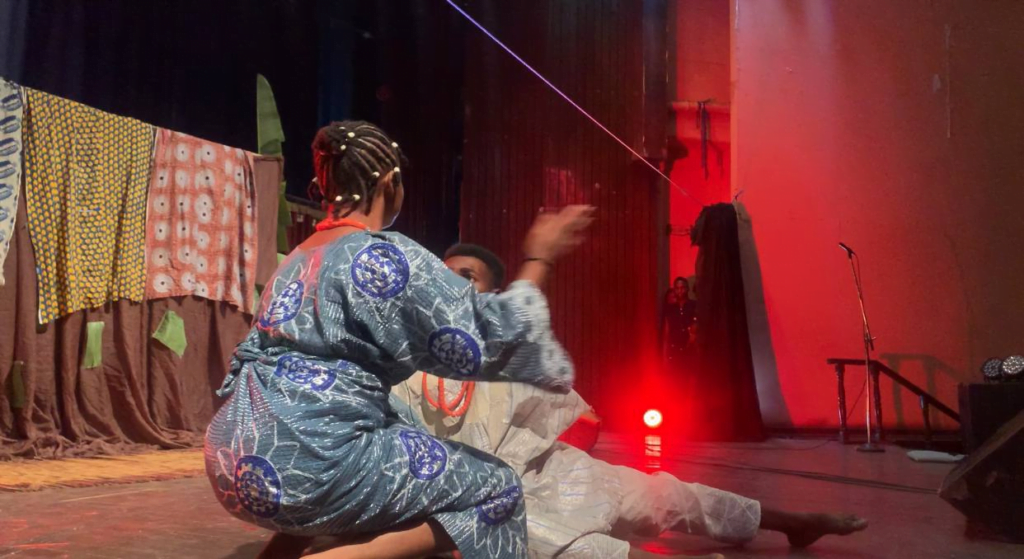
The land of Àyìnkẹ́ is torn apart by a brutal war. The people of Omífọ́n show no mercy as they attack and kill the inhabitants. Men, women, and children fall victim to their violence leaving behind a trail of death and destruction.
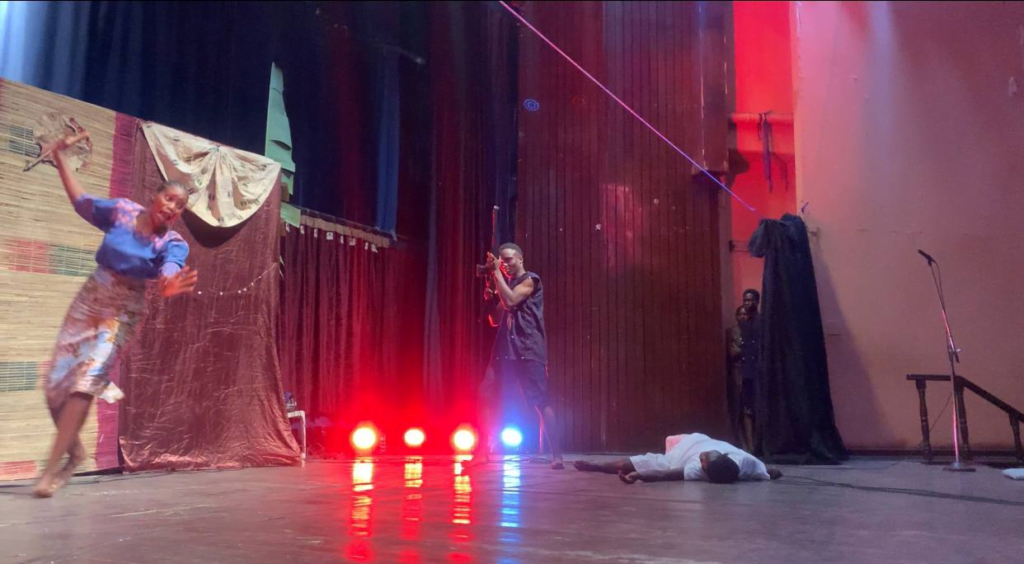
King Adébárá and his Olóyè’s, once strong and proud, now hide in fear, their faces filled with sadness, exhaustion, and despair. In their hidden refuge, a warrior from the Èṣó clan arrives, bearing tragic news.
They are weak, hungry, and long for food, but the warrior sadly reveals that there is none in the land. She shares the heartbreaking loss of lives, including Olówu, the brave warrior they admired, the assistant Chief Priest, and even the beloved son of Ìyálóde.
Each name spoken brings more pain and sorrow. Ìyálóde screams in agony as they calm her down. They know that if the people of Omífọ́n hear her cries, their hiding place will be discovered, and their lives will be in even greater danger.
As the warrior prepares to leave, tragedy strikes again. Gunshots rain down, taking her life before she can escape. The room fills with grief and sorrow, heavy with the weight of loss as King Adébárá and the Olóyè’s tremble with fear.
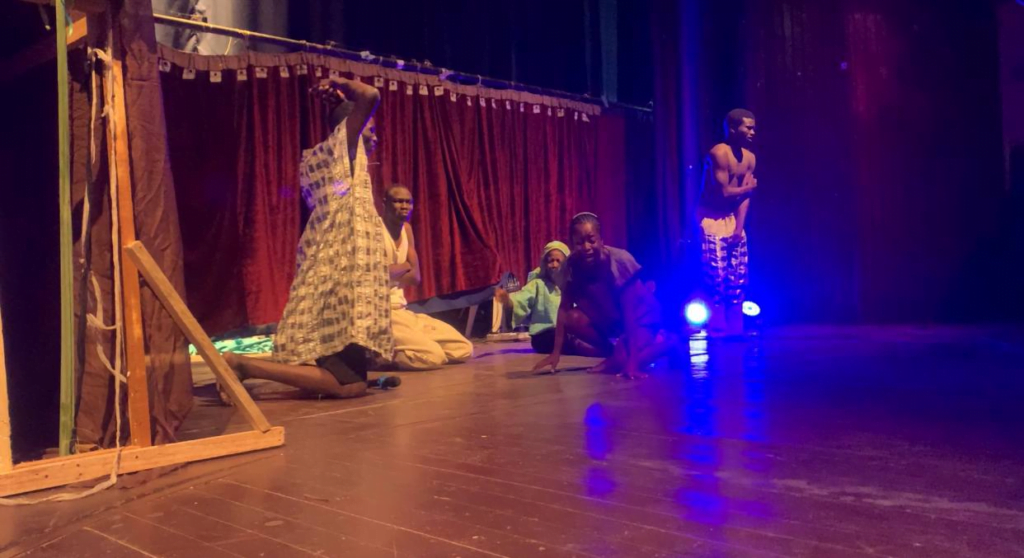
Later, Agbólúrìn arrives and stands before King Adébárá and his Olóyè’s. With a heavy heart, he confronts them about their disobedience to the words of Olódùmarè ́ and their forgetfulness of the abundant blessings they once enjoyed due to their insatiable greed.
He beseeches them to plead for mercy, assuring them that Olódùmarè ́ is near, listening attentively, and His hand is not too short to save them.
The Chief Priest reminds them that the wickedness plaguing their land originated from the moment they allowed the people of Omífọ́n to enter through their gates.
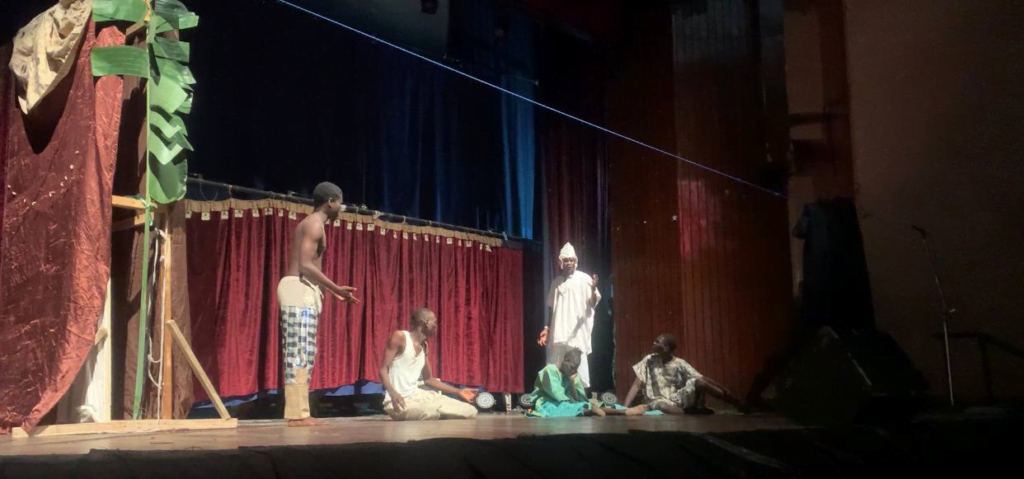
Tears stream down their faces as they grasp the weight of their transgressions. With deep remorse, they cry out for mercy, realizing the enormity of their mistakes.
As Agbólúrìn departs, leaving them to their prayers, their groans echo with intense agony, resounding through the air. Their souls are burdened with remorse as they earnestly seek forgiveness and redemption.
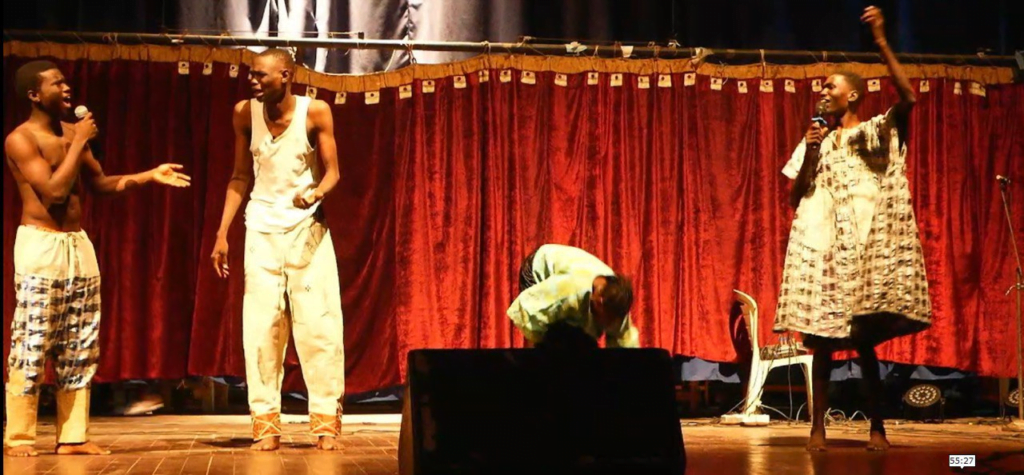
In the midst of their fervent prayers, a chilling sound pierces the air.
The people of Omífọ́n tremble in fear as they hear the clanking of armored tanks and the approach of mighty warriors.
Panic seizes them, and they hastily flee from the town of Àyìnkẹ́, fleeing with their entire population.
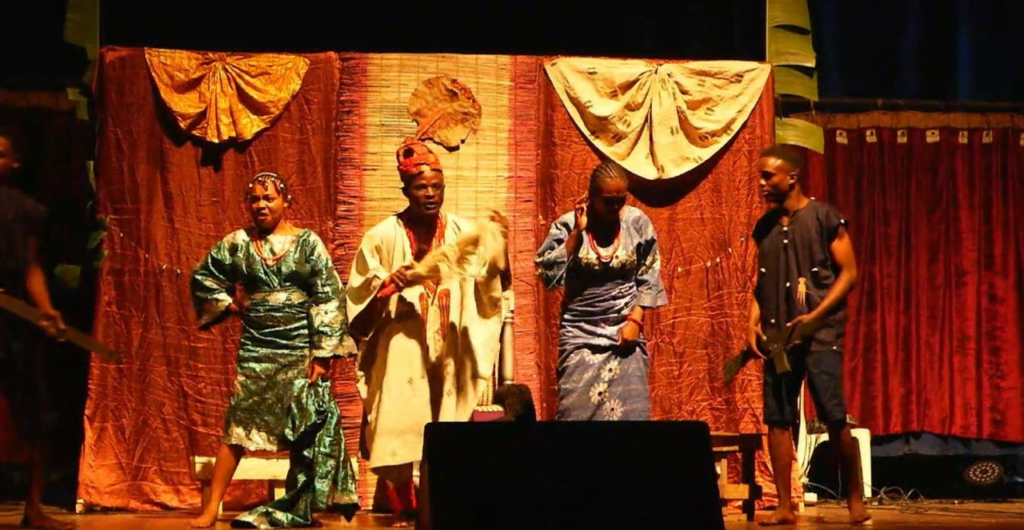
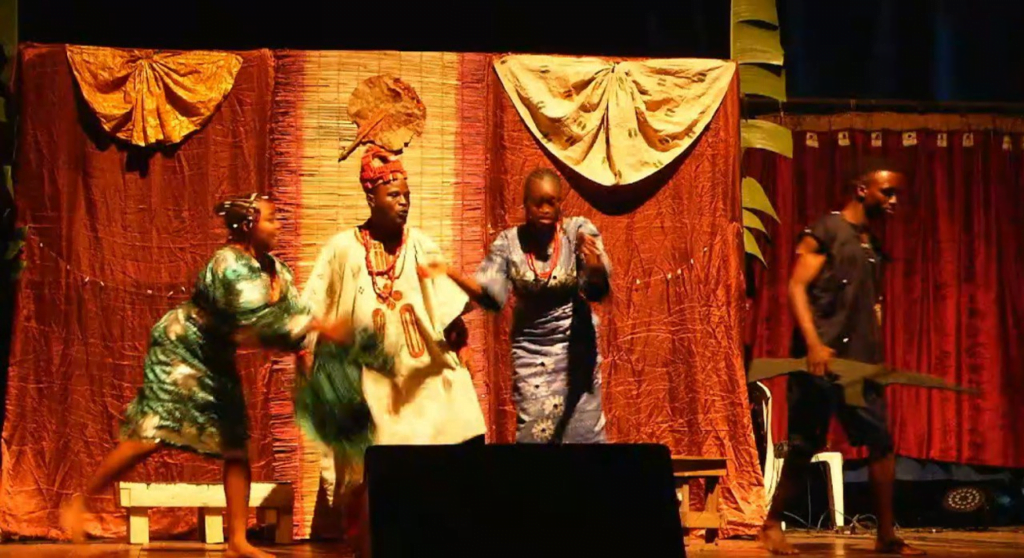
Meanwhile, King Adébárá and the Olóyè’s continue to pour their hearts out in prayer. Suddenly, a melodic sound fills the atmosphere—the sound of rain, the sound of abundance.
Overwhelmed with gratitude, they raise their voices in praise and worship to Olódùmarè ́. They rejoice in the knowledge that their prayers have been heard, their cries of mercy answered.
They express their profound thankfulness for the divine intervention that has come to their aid. Then Akíntọ́lá brought glad tidings of the Omífọ́n people’s departure, filling King Adébárá and his chiefs with hope.
They could now emerge from hiding and reclaim their land, ready to rebuild and restore their cherished home, thanks to Olódùmarè ́.
In the following scene, Ẹwàtómi or rather Ifálùsì and the people of Omífọ́n foam with anger upon realizing that the mighty warriors they heard were the manifestation of Olódùmarè ́, the God of Àyìnkẹ́.
They are infuriated that their God could forgive and fight for them despite their own foolish actions.
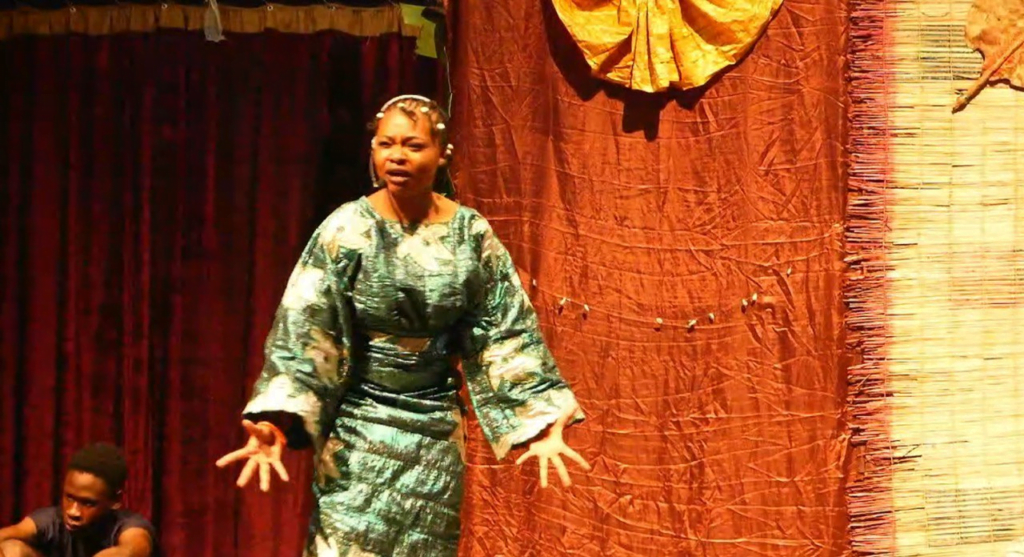
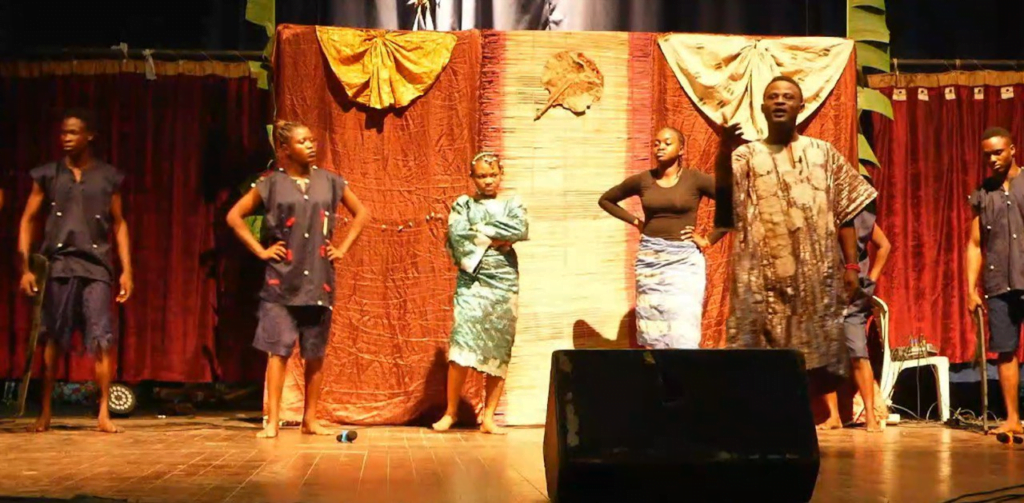
As fear starts to grip them upon hearing that the King of Àyìnkẹ́ has commanded the killing of any Omífọ́n person seen, their leader reminds them not to falter, for there are countless lands and unsuspecting people left for them to conquer, including the audience, which includes you, my dear reader.
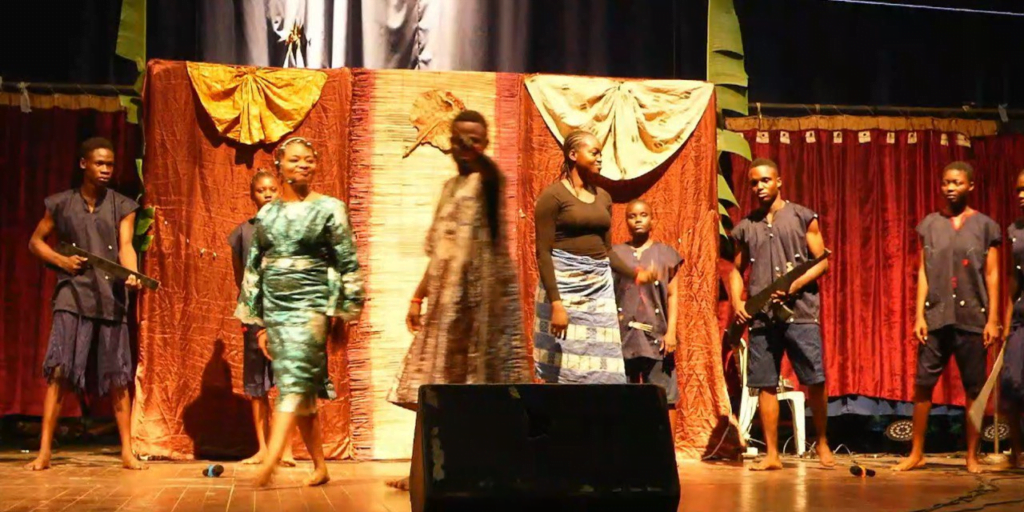
Thanks for reading to the end, I am praying and rooting for you.
I love you and Jesus loves you too.
Check out the review of the drama here.

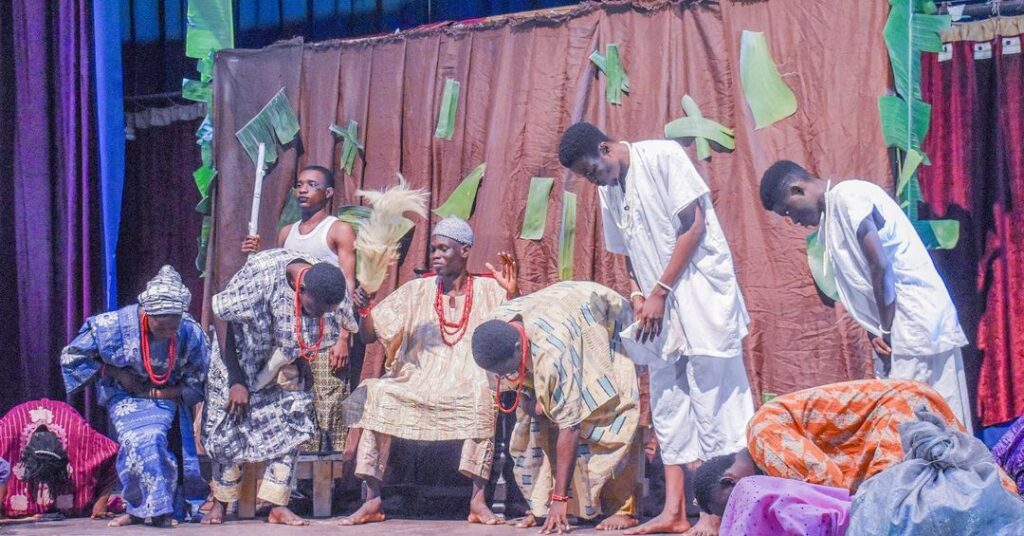

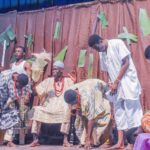


 RCF’s organizing unit calls for support as we take our sound system to a new level. The fellowship is on a project of purchasing new sound equipment. The support of everyone can make this a reality in due time. Thank you. RCF one family. 👫
RCF’s organizing unit calls for support as we take our sound system to a new level. The fellowship is on a project of purchasing new sound equipment. The support of everyone can make this a reality in due time. Thank you. RCF one family. 👫 RCF’s transportation unit calls for support as we take the transportation unit to Elijah’s level. The fellowship is on a project of purchasing a new bus and fixing the old bus. The support of everyone can make this a reality in due time. Thank you. RCF one family. 👫
RCF’s transportation unit calls for support as we take the transportation unit to Elijah’s level. The fellowship is on a project of purchasing a new bus and fixing the old bus. The support of everyone can make this a reality in due time. Thank you. RCF one family. 👫
4 thoughts on “THE ELECT | DRAMA NIGHT 2023”
The drama is an insightful one. I learned to be watchful and seek God’s face when making decisions. I should as well guard my GATES—association, ears, eyes, body, heart, etc. Also, our Father is loving and forgiving to those who are truly repentant and turn to him.
Thanks for this review, sister.
Pls I’d like to join the drama team
Hi Mercy,
Thank you for your interest in joining the drama team. Please, kindly click the link below and fill out the form to register for the RCF Unilag workers after which you will be able to join the drama unit.
https://rcfunilag.com/rcfwitregistration
We are looking forward to seeing you Mercy.
Wow, this article is fastidious, my younger sister is analyzing such things,
thus I am going to inform her.